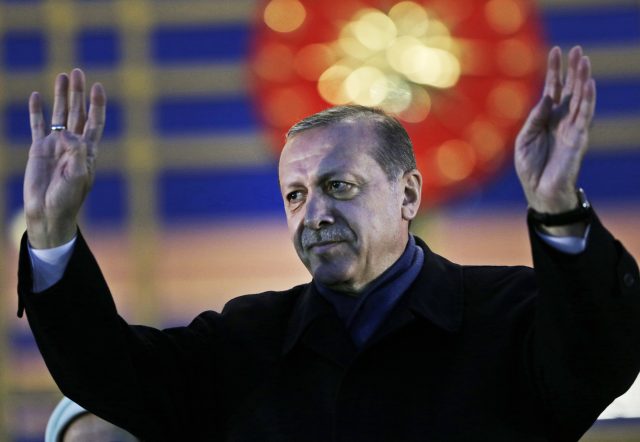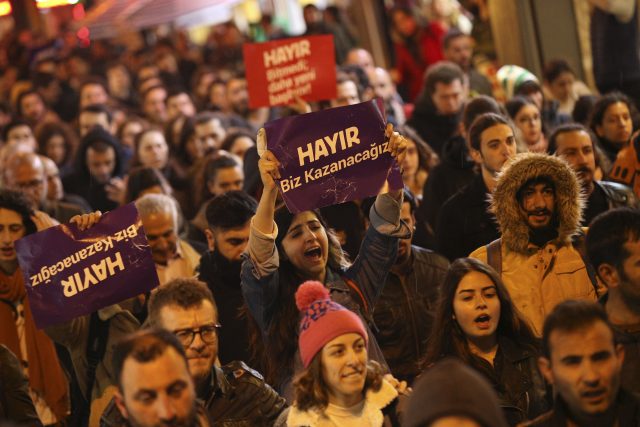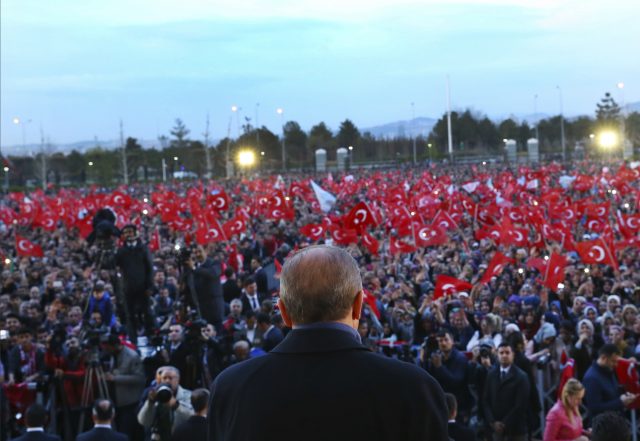
Turkey’s main opposition party is to challenge the outcome of the country’s April 16 referendum on expanding the president’s powers at the European Court of Human Rights, a day after a high court rejected its appeal.
The pro-secular Republican People’s Party, or CHP, is disputing the referendum which gave President Recep Tayyip Erdogan’s “yes” side a narrow victory.
Critics say there have been a number of irregularities, including an electoral board decision to count ballot papers that lacked official stamps.

International monitors also noted irregularities in the voting process and said the decision to validate the unstamped ballots removed an important safeguard against fraud, in violation of Turkey’s laws.
CHP spokeswoman Selin Sayek Boke announced the party’s decision to take the appeal to the Strasbourg-based court after the country’s high administrative court rejected its bid to have the electoral authority’s decision on the unstamped ballot papers overturned.
The Supreme Electoral Board also rejected an appeal by the opposition last week.
“It is our duty to protect the votes of every citizen that went to the polls,” Ms Boke said. “We will be applying to the ECHR in the period ahead. We are confident that we will meet again in more enlightened times.”

Mr Erdogan and other government officials have said the electoral authority’s decision is final, and that efforts to challenge it in courts – including the European court – would be futile. The electoral board has published past rulings on the validity of unstamped ballots.
The electoral authority is expected to confirm the official results of the vote later this week. Unofficial results show that the “yes” camp garnered 51.4% of the votes.
The vote switches Turkey’s system from a parliamentary one to a presidential system, abolishing the office of the prime minister while greatly increasing the powers of the president.
The “no” camp fears the changes will lead to a one-man authoritarian rule with too few checks and balances. Mr Erdogan has argued that a strong presidency will lead to greater stability and prosperity.

In Brussels, a senior European Union official said the referendum has raised “serious concerns” within the bloc on the democratic standards in Ankara and added that it was up to Mr Erdogan to clarify whether Turkey still wants to become an EU member.
Hungarian Prime Minister Viktor Orban, meanwhile, confirmed that he had congratulated Mr Erdogan on his victory in the referendum. Mr Orban said that while the quality of democracy was important, the priority for Turkey was its stability.


Comments: Our rules
We want our comments to be a lively and valuable part of our community - a place where readers can debate and engage with the most important local issues. The ability to comment on our stories is a privilege, not a right, however, and that privilege may be withdrawn if it is abused or misused.
Please report any comments that break our rules.
Read the rules here